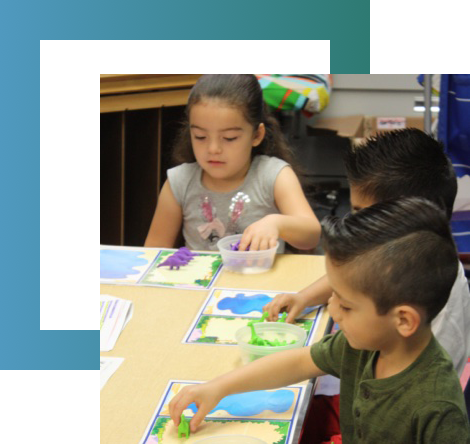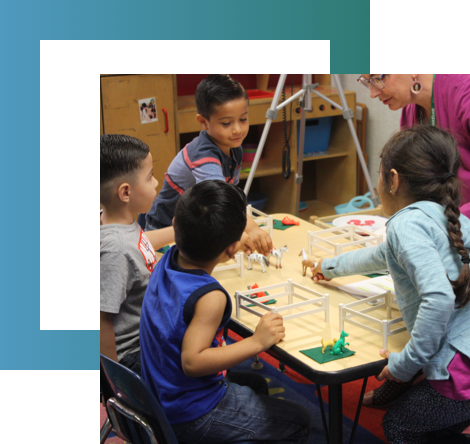
Mathematical thinking in young children
Research has found that mathematical thinking begins during infancy and undergoes extensive development over the first five years of life.
It is just as natural for young children to think mathematically about their world as it is for them to use language.
Young children develop informal mathematical knowledge that is based on the manipulation and representation of sets of concrete objects. The informal mathematical knowledge of preschool children is less abstract than the formal mathematical knowledge of school-age children.
Pre-K Mathematics is designed to support and build upon the child’s Informal Mathematical Knowledge
-
Number and Number Relations
Counting and comparing the number of objects in a set
-
Arithmetic Operations
Arithmetic problem solving with sets of visible or hidden objects
-
Spatial Sense and Geometry
Naming and analyzing the features of 2- and 3-dimensional shapes; naming and representing the position and movement of objects in space
-
Mathematical Patterns
Creating, duplicating, and extending concrete patterns
-
Measurement and Data
Comparing measurable features of objects such as length; counting, comparing, and representing data
Why Pre-K Mathematics works
-
Pre-K Mathematics Curriculum
Grounded in cognitive developmental theory and research on early math abilities. Aligned to the common core math standards.
-
Professional Development
A hands-on approach to learning effective early math instruction through active participation.
-
Personalized Coaching
Training and technical assistance in developing an effective professional development model, including on-site support.
-
Home Activities
Math activities sent home to keep and use with children and families.

How is the Pre-K Mathematics Curriculum Implemented?
- Engaging hands on activities conducted in small groups 2-3 times a week
- A new activity each week that builds on previous knowledge with built in developmental adjustments
- In class coaching provided by professional development staff
- Home activities sent home weekly for families to support children’s learning